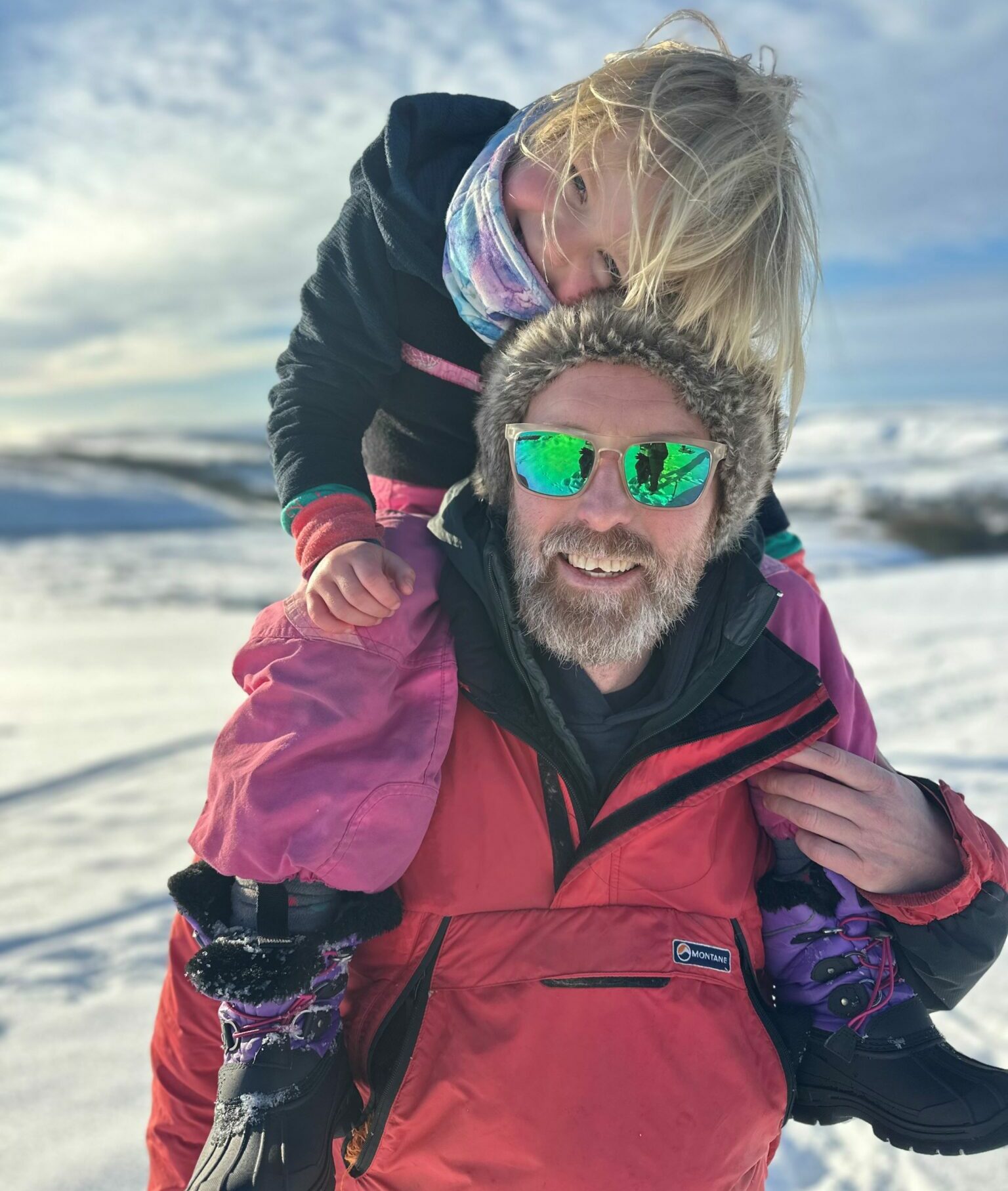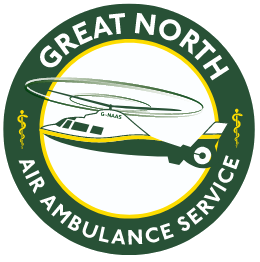“Flying around the Lake District and providing world class pre-hospital care. How could that not be something I wanted to be involved with?”
Dr Mike Brooke’s career has seen him progress from being a paramedic at North West Ambulance Service (NWAS) to working as an anaesthetist at Royal Preston Hospital (RPH), and now having shifts as an air ambulance doctor at GNAAS.
Mike, who lives near Preston, joined the charity nine months ago and he recently passed the notorious sign-off day, which means he can fly ‘solo’ with the critical care team’s paramedic and pilot crew.
We had a chat with Mike to find out more about his sign-off day and his career so far…
What career path did you take to become a doctor and what is your current job outside of GNAAS?
I’m an Anaesthetic ST7 in the North West Deanery, and currently based at RPH for about a third of my month, and here with GNAAS for the other two thirds. I finish my anaesthetic training in November this year, and I hope (all being well) to be appointed as a Consultant Anaesthetist at RPH. Obviously, I’d also like to keep working here at GNAAS as well, for as long as they’ll have me.
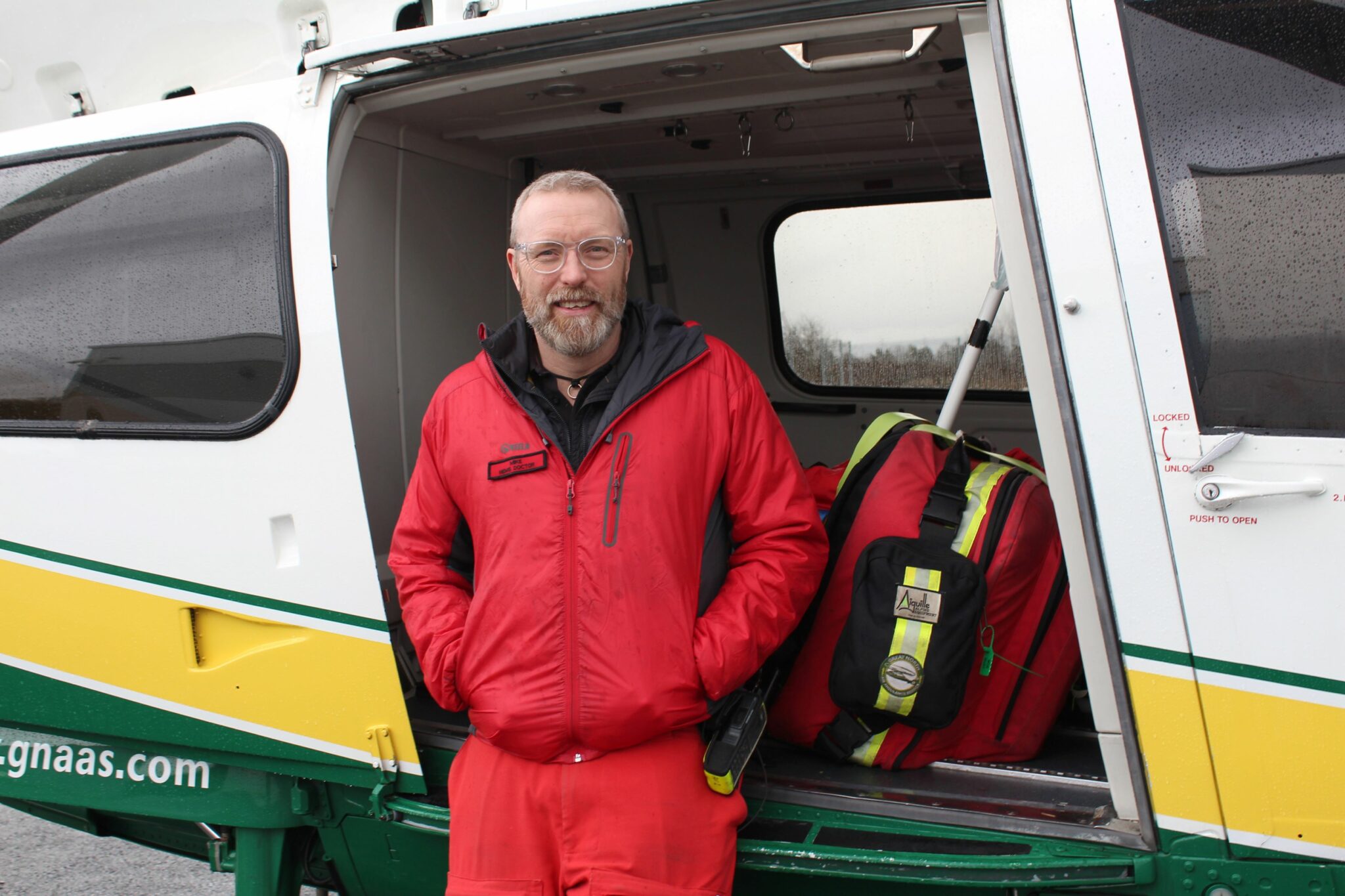

I’m quite old to be a ‘Resident Doctor’ (the new title for Doctors in Training), but that’s because it’s my second career. I joined Lancashire Ambulance Service (which became NWAS) in 2001 and qualified as a paramedic in 2003. I spent the next 10 years working in Lancashire and Cumbria on ambulances and response cars. My wife, Lisa, is a doctor, and I used to wonder whether I had what it took to go to medical school, but was never particularly academic, so kept dismissing it as a pipe dream.
Eventually, we were financially in a position for me to have a go at applying, and Lisa was sick of me debating whether I should or not, so she drove me to the interview and pushed me out of the car and somehow, I was successful. Four years at Warwick Medical School, a couple of years as a Foundation Doctor and seven years of anaesthetic training has led me full circle, right back to where I really wanted to be.
Why did you want to become a doctor?
I think I wanted a new challenge. I knew I loved pre-hospital care, but also wanted to know whether I had what it would take to be an anaesthetist. It just seemed logical that I should try and combine the two and I’ve always been a bit impulsive, so thought I’d have a shot at it.
What made you want to work for GNAAS?
I lived near Cockermouth for a couple of years, and worked for NWAS based out of Ulverston, so met the GNAAS guys quite a lot. I always thought they must have the best job in the world! Flying around the Lake District and providing world class pre-hospital care. How could that not be something I wanted to be involved with?
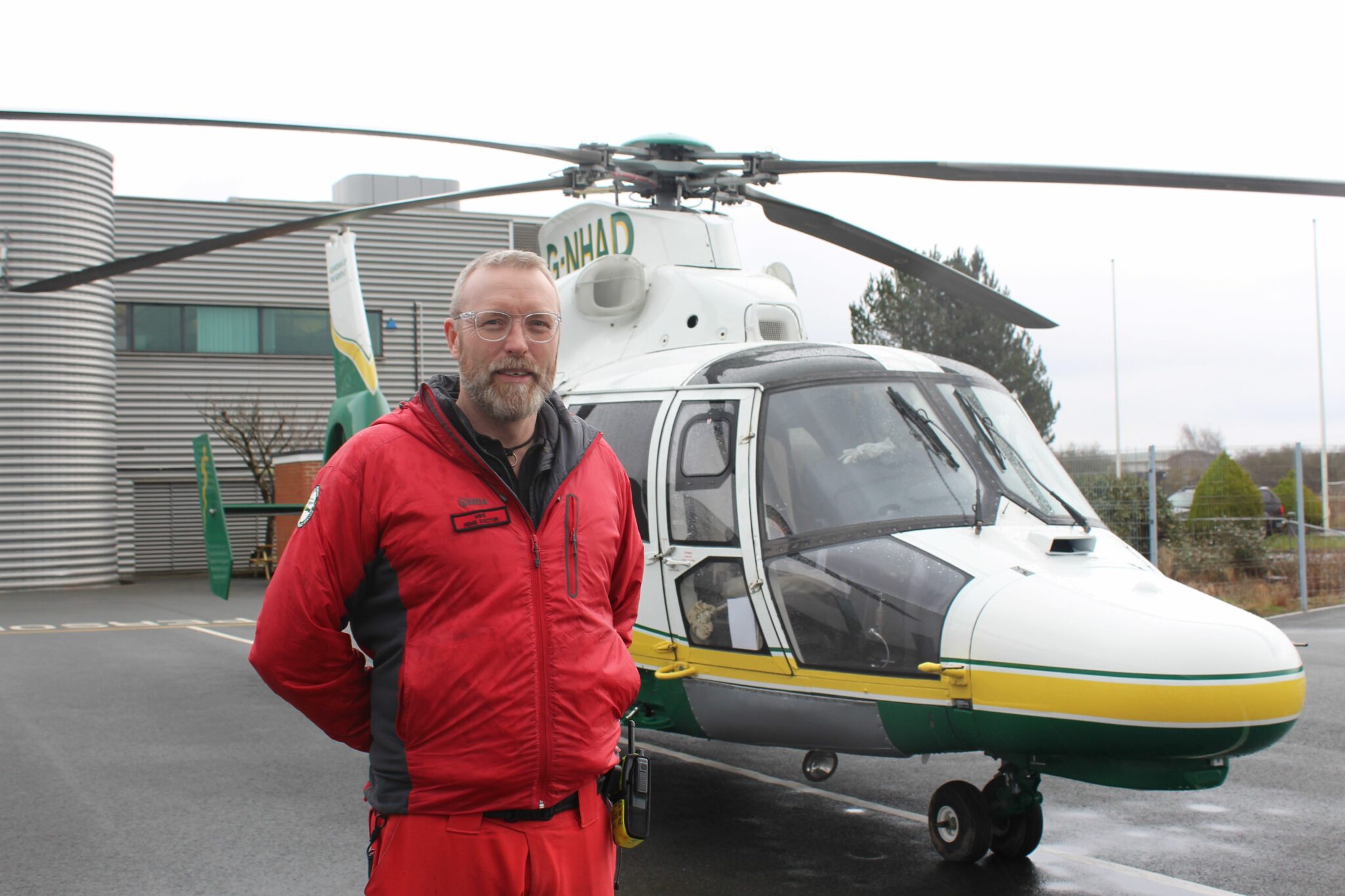

How have you found your time at GNAAS so far? Any particular highlights?
It’s been a crazy combination of amazing and exhausting. The operational team have been the most supportive people I’ve ever worked with, and the charity is supported by the most dedicated team of individuals I’ve ever met. The hours are long, the travel and time away from home is tough, and the work can be emotionally draining, but when I look back, I wouldn’t change anything. The most memorable cases are obviously those where the patients are so critically unwell that they wouldn’t survive going to hospital without ‘enhanced care’, such as blood or an anaesthetic. The hard work has paid off when these patients make it to hospital, and safely out the other side, back to their family.
Could you talk me through the sign-off day?
Sign-off day is a bit infamous throughout the HEMS world. All of the hard work, simulations, drills, reading and revising needs to come together to give you the best chance of success, along with just a little bit of luck! The actual day was exhausting, we had the usual operational checks and jobs to do, alongside a selection of complex simulations on both adult and paediatric patients. I was tested on standard operating procedures, drugs, equipment and flight regulations until my head spun. I had an inkling it was going ok when we went to Tesco to get food, and my assessing consultant bought me a drink. I figured he wouldn’t do that then fail me.
How did it feel to be told you’re signed off?
A massive relief! The last 15 years has been about getting myself in a position to be a ‘real’ HEMS doctor and finally it looked like this might happen. Additionally, my family have made such a huge sacrifice to allow me to do this, so to go home and tell them I’d not quite made the grade would have been devastating.
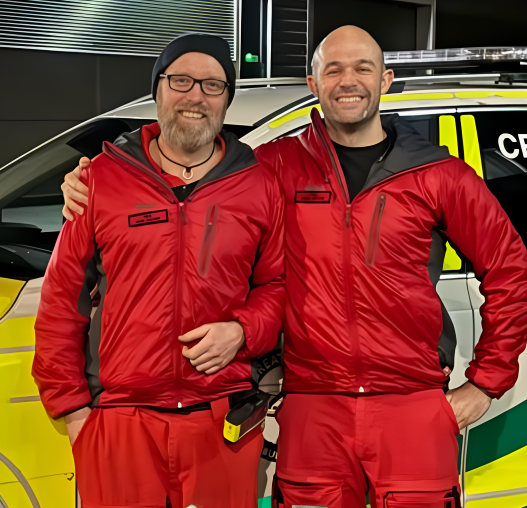

Did you do anything to celebrate?
No. The crew let me leave base a bit early, but it’s two hours to get home and by the time I got there the kids were in bed. My wife and I had a celebratory beer, and I got reminded that I wasn’t a HEMS doctor at home, so I did the washing up.
What do you like to do outside of work?
I’m a keen hill person, be that climbing, biking, snowboarding or running, so most of my downtime is centred around that in one way or another, and I also ride motorbikes (much to my mother’s disdain).
